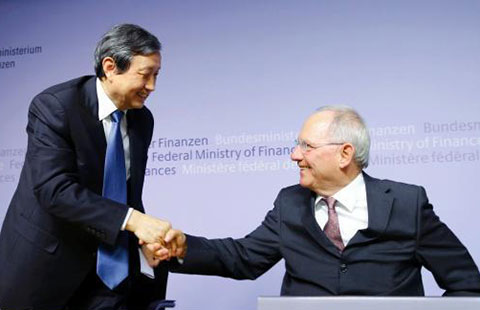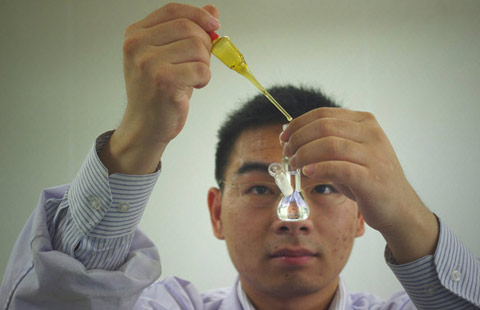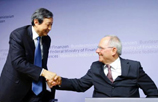AIIB has tremendous influence on shift of power from West to East
(Xinhua) Updated: 2015-04-02 10:22Segers believes "there is no way to stop a potential power from exerting economic influence."
"So the reasoning is how we in the West can profit from China, rather than how we can keep China out of our country, and out of international institutions," he said.
Citing the International Monetary Fund for example, the professor said the changes are "too slow and marginal" in such international financial organizations despite calls to change its voting power according to the world's new economic reality.
In the IMF, China has 3.8 percent of the voting power, the Netherlands has 2.0 and the US 16.8.
On the noteworthy interest in the China-proposed AIIB declared by US allies from Europe, the professor said it has showed many politicians and business people in Europe seem to have lost their anxiety for China and want to cooperate.
Segers said the fundamental question now for AIIB is how to make it a successful, effective and inclusive international financial institution.
"The success of the AIIB will depend on its regulations, its transparency, a sustainable voting power of all member nations concerned, and a fair and equal division of the financial means towards infrastructural projects in regions that need those projects most", he said.
The Netherlands has already applied to join the AIIB as a founding member before March 31, the deadline of application.
If the Netherlands succeeded in joining the AIIB, it could help shape AIIB's mandate, governance model and policies, according to the professor.
The AIIB, which will support infrastructure projects in Asia, is expected to be established by the end of this year. The final number of founding members will be confirmed on April 15.
- Coal sector's woes drive up bad loans
- China willing to strengthen communication with India
- China's deposit insurance brings floating interest rates closer
- Environment ministry targets fake air quality data
- State Council vows measures to boost e-commerce
- Alibaba to fund mobile commerce start-up incubator in India
- China broadens investment scope for social security fund
- Has spring sprung for housing sector?

















